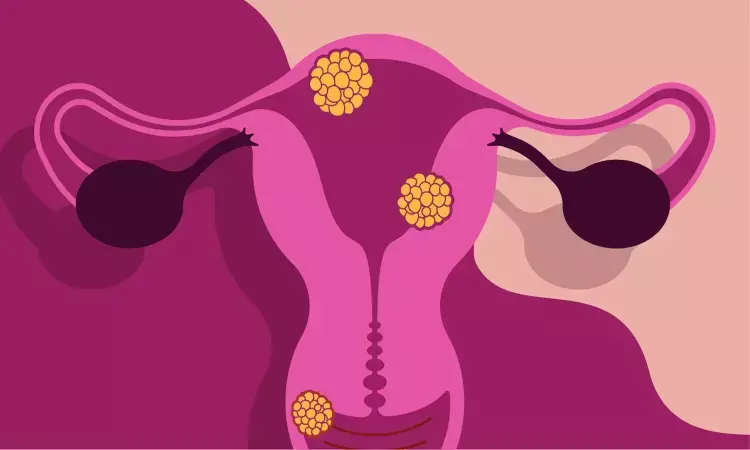- Home
- Medical news & Guidelines
- Anesthesiology
- Cardiology and CTVS
- Critical Care
- Dentistry
- Dermatology
- Diabetes and Endocrinology
- ENT
- Gastroenterology
- Medicine
- Nephrology
- Neurology
- Obstretics-Gynaecology
- Oncology
- Ophthalmology
- Orthopaedics
- Pediatrics-Neonatology
- Psychiatry
- Pulmonology
- Radiology
- Surgery
- Urology
- Laboratory Medicine
- Diet
- Nursing
- Paramedical
- Physiotherapy
- Health news
- Fact Check
- Bone Health Fact Check
- Brain Health Fact Check
- Cancer Related Fact Check
- Child Care Fact Check
- Dental and oral health fact check
- Diabetes and metabolic health fact check
- Diet and Nutrition Fact Check
- Eye and ENT Care Fact Check
- Fitness fact check
- Gut health fact check
- Heart health fact check
- Kidney health fact check
- Medical education fact check
- Men's health fact check
- Respiratory fact check
- Skin and hair care fact check
- Vaccine and Immunization fact check
- Women's health fact check
- AYUSH
- State News
- Andaman and Nicobar Islands
- Andhra Pradesh
- Arunachal Pradesh
- Assam
- Bihar
- Chandigarh
- Chattisgarh
- Dadra and Nagar Haveli
- Daman and Diu
- Delhi
- Goa
- Gujarat
- Haryana
- Himachal Pradesh
- Jammu & Kashmir
- Jharkhand
- Karnataka
- Kerala
- Ladakh
- Lakshadweep
- Madhya Pradesh
- Maharashtra
- Manipur
- Meghalaya
- Mizoram
- Nagaland
- Odisha
- Puducherry
- Punjab
- Rajasthan
- Sikkim
- Tamil Nadu
- Telangana
- Tripura
- Uttar Pradesh
- Uttrakhand
- West Bengal
- Medical Education
- Industry
Microbiome therapy may prevent recurrence of bacterial vaginosis

Bacterial vaginosis affects 15 to 50% of women of reproductive age, and recurrence is common after treatment with an antibiotic agent. The high incidence of recurrence suggests the need for new treatments to prevent recurrent bacterial vaginosis.
Researchers have found that the use of Lactin-V after treatment with vaginal metronidazole resulted in a significantly lower incidence of recurrence of bacterial vaginosis.The findings have been published in the New England Journal of Medicine.
A product containing healthy vaginal bacteria has proved effective against recurrent bacterial vaginosis (BV), an extremely common vaginal infection that is associated with preterm birth, HIV infection and problems with in vitro fertilization.
Bacterial vaginosis is one of the most frequent bacterial infections, affecting nearly 30 percent of women of reproductive age in the United States, and anywhere from 15 to 50 percent of women around the world. It is associated with the spread of HIV in Africa, where women make up the majority of those infected, as well as preterm birth and low-birth weight around the world.
The findings come from a Phase IIB trial of LACTIN-V, a so-called "live biotherapeutic," conducted at UC San Francisco, UC San Diego, Rush University Medical Center in Chicago, and Washington University in St. Louis.
The randomized, placebo-controlled, double-blind trial showed a significant reduction in the recurrence of BV and found no safety risks from the bacteria used in the LACTIN-V formulation of the species Lactobacillus crispatus CTV-05, a common bacterium found in healthy vaginal microbiomes.
While BV is commonly treated with an antibiotic called metronidazole, up to three-quarters of women get the infection again within three months. The study found that LACTIN-V reduced these recurrences significantly. Just 30 percent of women who were given LACTIN-V after initial antibiotic treatment had a recurrence within 12 weeks, compared to 45 percent of the women who received the antibiotic and a placebo.
LACTIN-V, which is produced by Osel, Inc. of Mountain View, Calif., comes in a powder form that women self-administer with a vaginal applicator. Once the healthy bacteria in the powder colonize the vagina, they produce lactic acid, which inhibits the growth of bacteria associated with BV. LACTIN-V is stable for more than a year at room temperature, and more than two years in the refrigerator.
The 228 women in the trial used LACTIN-V once a day for five days, and then twice a week for 10 weeks. Researchers said the product's ease of use could make it an ideal medication for women around the world.
"The initial indication for LACTIN-V is for the prevention of BV, which millions of women in the U.S. have each year," said first author of the paper and study lead Craig Cohen, MD, professor of obstetrics, gynecology and reproductive sciences at UCSF. "But this product also has the potential to be an effective intervention to prevent HIV infection and preterm birth."
Before LACTIN-V can be used, however, the U.S. Food and Drug Administration (FDA) is likely to require a successful Phase III trial with more participants.
"This is an entirely new approach that strengthens the vaginal microbiome against infections," said Anke Hemmerling, MD, PhD, MPH, a researcher at UCSF and the senior author of the new study. "This could be a breakthrough for the long-term prevention of BV."
For more details click on the link: http://dx.doi.org/10.1056/NEJMoa1915254
Hina Zahid Joined Medical Dialogue in 2017 with a passion to work as a Reporter. She coordinates with various national and international journals and association and covers all the stories related to Medical guidelines, Medical Journals, rare medical surgeries as well as all the updates in the medical field. Email: editorial@medicaldialogues.in. Contact no. 011-43720751
Dr Kamal Kant Kohli-MBBS, DTCD- a chest specialist with more than 30 years of practice and a flair for writing clinical articles, Dr Kamal Kant Kohli joined Medical Dialogues as a Chief Editor of Medical News. Besides writing articles, as an editor, he proofreads and verifies all the medical content published on Medical Dialogues including those coming from journals, studies,medical conferences,guidelines etc. Email: drkohli@medicaldialogues.in. Contact no. 011-43720751


